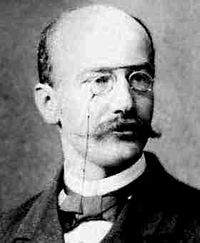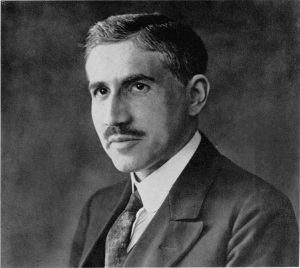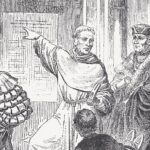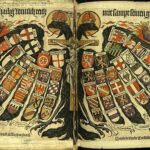April 12, 1500
Birth of Joachim Camerarius in Bamberg, Germany. Camerarius was a classical scholar who became a friend of Philipp Melanchton at Wittenberg. He was a professor of classics at Tübingen and was later called to reorganize the University of Leipzig. He died on April 17, 1574 in Leipzig.
April 12, 1622
Birth of Johann Christian Baron von Boyneburg in Eisenach, Germany. He was a diplomat of the Archbishop-elector of Mainz, Philipp von Schönborn. He was a principal negotiator of the League of the Rhine (1658) by which an alliance was struck between several small German states and France to defend against the re-establishment of Habsburg domination sought by the Holy Roman emperor, Leopold I.
April 12, 1723
Birth of Franz Anton Bustelli in Locarno, Switzerland. Bustelli achieved fame through his porcelain sculptures. He worked at a porcelain factory at Nymphenburg, Germany. He died in Munich on April 18, 1763.
April 12, 1801
Birth of Otto von Gerlach in Berlin, Germany. Gerlach was the pastor of the new St. Elisabeth Church in a working class district in Berlin where he introduced pastoral social work. He later became a professor of theology at the University of Berlin.
April 12, 1849
Birth of Albert Heim in Zürich, Switzerland. Heim was a geologist who studied the Alps and made significant contributions to the knowledge of mountain building and glacial effects. He was the chair of the department of geology at the Federal Polytechnic School in Zürich.
April 12, 1852
Birth of Ferdinand von Lindemann (1852-1939) in Hannover, Germany. Lindemann was a mathematician who proved that the classic Greek problem of squaring a circle by compass and straightedge is insoluble for, as he showed, the number “pi” is transcendental. He published his results in the article “Über die Zahl pi”.
April 12, 1878
Birth of Richard Goldschmidt in Frankfurt am Main, Germany. Goldschmidt was a zoologist and geneticist. He began his career in Germany but fled in 1936 to the United States. In America he taught at the University of California at Berkeley. His life work was devoted to research on moths, worms and fruit flies. He discovered elements of intersexuality and genetic development.
April 12, 1884
Birth of Otto Meyerhof (1884-1951) in Hannover, Germany. Mayerhof was a biochemist who won the Nobel Prize for Physiology or Medicine in 1922 for his work on the chemical reactions of metabolism in muscles. He examined the glycogen-lactic acid cycle. Meyerhof earned his doctorate in medicine at the University of Heidelberg. He taught at the university of Kiel.
April 12, 1965
Anni Moser becomes the head of a German labor union, the first woman in history to take that position.
April 12, 1986
16-year-old Steffi Graf wins her first professional tennis tournament.
April 12, 1990
Lothar de Maziere becomes East German Prime Minister.
April 12, 1990
The director of the Gewandhaus orchestra of Leipzig, Kurt Masur, becomes the first German music director of the New York Philharmonic Orchestra.
Back to Today in German History Calendar









